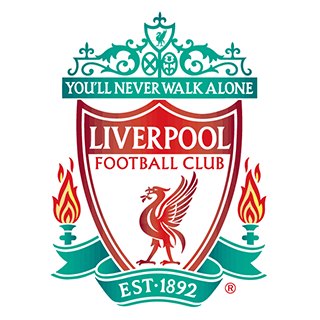Death of the 6-goal NHL total: High-scoring hockey is gone forever
By JASON LOGAN
For the supposed “fastest game on earth”, hockey teams are dragging their skates when it comes to scoring pace.
So far this season, NHL teams have allowed just 2.49 goals against per game, which is currently tied for the second lowest league-wide GAA since the 1955-56 NHL season when teams gave up the same amount (2.49) of goals per contest. And if you need further evidence that goal scoring in the NHL is a lost art, just look at the decline in NHL Over/Under numbers since the league lockout in 2004-05.
Following the lockout, which brought with it numerous rule changes to help speed up the game and increase scoring, the 2005-06 NHL season had 1,064 regular season games (all but 166 games) with a betting total of six goals or more. Last year, NHL bettors saw just seven. That’s a decrease of more than 99 percent over the last 10 NHL seasons. And, for the 2015-16 NHL season, oddsmakers have yet to find a game worthy of a total of six goals or more, only going as high as 5.5 with adjusted juice.
In fact, the last NHL game to warrant a total of six or more goals was December, 29, 2014. The Tampa Bay Lightning hosted the Toronto Maple Leafs, with the Lightning winning 3-2 and the final score staying below the number.
Dustin Nielson, an NHL analyst and talk radio host on TSN 1260 in Edmonton, believes two factors have played into the decline in scoring over the past 10 seasons: the use of advanced analytics to fine tune defensive pairings and matchups, and a decrease in ice time for the NHL’s top scorers. Nielson points to the latter as the major culprit, stating that the best offensive talents are playing less therefor not scoring at the same pace.
Chicago Blackhawks winger Patrick Kane, the NHL’s leading scorer (84 points as of Feb. 22) ranks fifth among forwards in average ice time with 20:40 minutes per game this season. Going back to the 2005-06 campaign, average ice time for forwards has been shrinking and Kane’s 2015-16 minutes wouldn't even crack to Top 10 in any of those 10 previous seasons, save for the last two years:
Here is where Kane’s 20:40 minutes of ice time would rank in each of those seasons:
2014-2015 – T-1st (leader was John Tavares at 20:40)
2013-2014 – T-10th (leader was Sidney Crosby at 21:59)
2012-2013 - 14th (leader was Ilya Kovalchuk at 24:44)
2011-2012 - 16th (leader was Ilya Kovalchuk at 24:25)
2010-2011 - 14th (leader was Ilya Kovalchuk at 22:33)
2009-2010 - 18th (leader was Ilya Kovalchuk at 22:02)
2008-2009 - 20th (leader was Alex Ovechkin at 23:00)
2007-2008 – T-24th (leader was Martin St. Louis at 24:17)
2006-2007 – T-21st (leader was Martin St. Louis at 24:09)
2005-2006 - 18th (leader Rod Brind'Amour at 24:17)
Nielson uses this year's scoring race as an example, with the top point getters in the mid-80s compared to the 100-point totals hockey fans have seen over those last 10 seasons. In 2005-06, Joe Thornton topped the NHL with 125 points and was one of seven players with 100-plus points on the year. Since the 2010-11 campaign (lockout-shortened 2012-13 season excluded), there have been only three players hit triple figures in points on the season.
“I'm almost certain if Tavares and Crosby were playing 23 or 24 minutes a night those totals would be a heck of a lot different,” Nielson said.
In 2005-06, NHL scoring jumped from 5.14 goals per game in the season prior to the lockout to 6.16, which was the highest-scoring NHL schedule since the 1995-96 season, which averaged 6.28 goals a contests. Of those 1,064 games with totals of six goals or more, teams averaged 6.44 goals per game but still boasted a 480-524-60 Over/Under count (52 percent Under), a forerunner of things to come in the NHL.
The next season, NHL totals of six or more goals were limited to 693 games. In 2007-08, Over/Unders of six-plus totaled just 209 games. There were only 200 in 2008-09 and 217 in the 2009-10 season. NHL totals of six or more goals were trimmed to 58 games in 2010-11. And over the last five NHL seasons, there have only been 54 games with an Over/Under of six or more goals, including just 16 in 2013-14 and 2014-15 combined, with none in the 2015-16 campaign so far.
Oddsmakers don’t have a rhyme or reason for the decline in scoring for the NHL – they honestly don’t really care to know - and simply react to how games are played out. According to Peter Korner, founder of Nevada-based odds service The Sports Club, he remembers setting nine-goal totals for Pittsburgh Penguins games back in the 1990s but says making today’s NHL totals is pretty much picking between two numbers.
“Totals are very easy now,” Korner said. “You really don’t have to personally research each game. You choose between 5.5 and 5. As for why those numbers, it just it. Scores are much lower. It’s simple to dissect from a betting standpoint.”
Games with totals of six goals or more (between 2005-06 and 2015-16) have finished with a collective 1,123-1,218-186 Over/Under record, playing Under the number 52 percent of the time. However, last season - which had only seven NHL games with totals of six goals - teams went 5-2 O/U.
For 2015-16, NHL games – regardless of total number - are 369-384 O/U (50.99 percent Under) as of Monday. And recently there has been a strong trend toward the Over, with NHL games finishing with a 96-60 Over/Under mark over the past 30 days (61.5 percent). But despite that uptick in high scores, oddsmakers aren't brining totals of six or more back from the dead.
And if the 6-goal total is on its deathbed, then the 6.5-goal total is the dodo bird. There’s hasn’t been a 6.5-goal total in an NHL regular season game since the Washington Capitals hosted the Carolina Hurricanes on November 28, 2010 – a 3-2 win for Carolina that finished Under the total. There were four 6.5-goal totals that season and they all finished below the number.
As for totals of seven goals or more - which have been slashed to unicorn status - NHL bettors may never get to wager on those sky-high Over/Unders again. There were 81 games with totals of seven or more in the 2005-06 season, finishing 25-36-20, and only nine in 2006-07, with a 1-8 O/U count.
The last NHL game with a total of seven was on April 3, 2007 when the Pittsburgh Penguins defeated the Buffalo Sabres 4-1 at home. That could stand as the exact day high-scoring hockey died for good.
Rest in peace 6-goal totals. You were fun while you lasted.






















